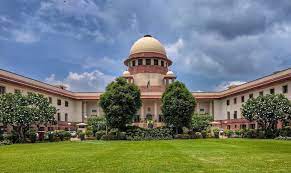Wherein it was held that the appellant, who was working as a sports officer/physical training instructor[For short ‘PTI’] in the respondent No. 1 – Jawaharlal Nehru Krishi Vishwa Vidyalaya[For short ‘the University’], falls under the definition of a “teacher” and is entitled to retire at the age of 62 years, at par with teachers serving in the respondent no. 1 – University. (Para 1)
The appellant submitted a representation to the respondents stating that by virtue of the aforesaid decision, the age of teachers was raised by the State Government from 60 years to 62 years with effect from the year 1998 and the said decision also covered the respondent No. 1 – University, thereby entitling teachers serving in the University to superannuate at the age of 62 years instead of 60 years. He urged that since sports officer/PTI working in the respondent No. 1 – University fall under the definition of “teacher”, their age of superannuation should also be treated as 62 years. (Para 2.2)
Thus, it can be seen that the definition “teacher” is inclusive in nature and not just confined to a Professor, Associate Professor or Assistant Professor, as defined in Statute 32. When Section 2(n) of the A.P. Act is read in conjunction with Statute 32, the word “teacher” encompasses one who is enjoined to impart instructions and/or conduct and guide research and/or extension programmes. The definition being inclusive in nature would have to be read expansively and when read in the context of PTI/Sports Officer, it cannot be denied that the appellant while discharging his duties was required to impart instructions relating to the rules and practices adopted for various categories of sports. (Para 8)
In the case at hand, a comparison of the fact situation and the provisions of the relevant Act and Regulations with those analysed in the case of P.S. Ramamohana Rao (supra), would show clear parity. Just as under the A.P. Act where the definition of a “teacher” contained in Section 2(n) was an expansive one and extended not only to those persons who impart instructions, conduct and carry on research work for extension programme, but also those who were declared to be a teacher within the purview of the definition under the Statute framed by the State Government, same is the position under the J.N.K.V.V. Act, the Statute and relevant Regulations. We are therefore of the opinion that the Division Bench of the High Court fell into an error by placing reliance on the decision in Ramesh Chandra Bajpai (supra), where the issue involved was at variance. (Para 11)
In view of the aforesaid discussion, it is deemed appropriate to quash and set aside the impugned order dated 14th December, 2009 and restore the judgment dated 26th April, 2005 passed by the learned Single Judge. It is declared that the appellant, who was discharging the duties of a PTI/Sports Officer, would fall within the definition of a “teacher” and would have been entitled to be continued in service till completion of 62 years of age. (Para 12)
SUPREME COURT OF INDIA
2023 STPL(Web) 475 SC
[2023 INSC 1067]
P.C. Modi Vs. Jawaharlal Nehru Vishwa Vidyalaya And Another
Civil Appeal No. 4267 of 2011-Decided on 13-12-2023
https://stpllaw.in/wp-content/uploads/2024/01/2023-STPLWeb-475-SC.pdf







